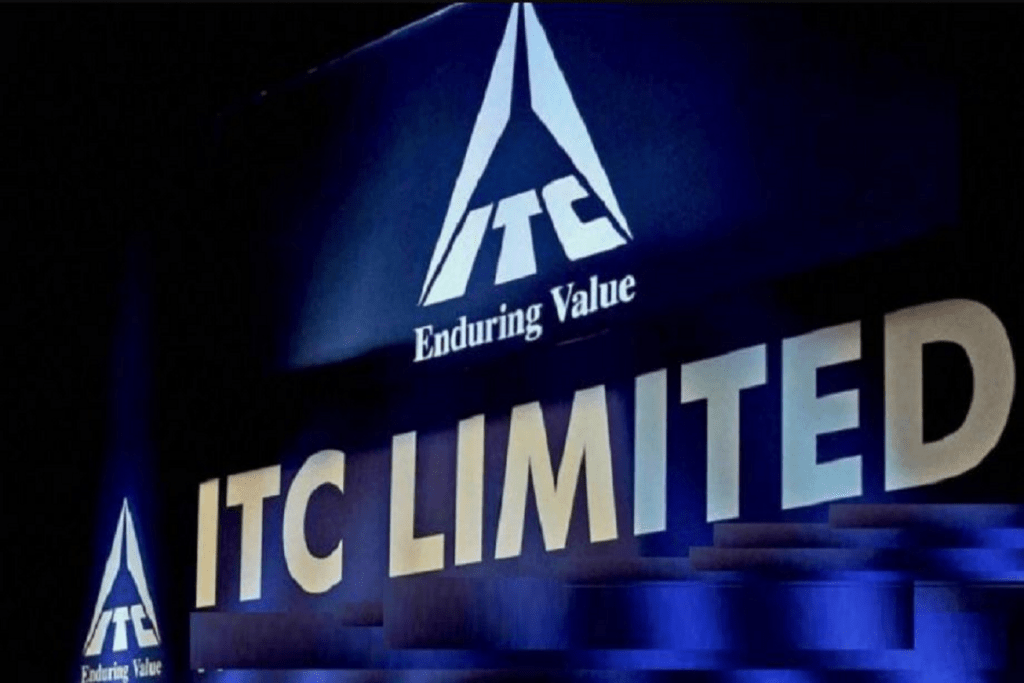Introduction:
In this blog, we will conduct a comprehensive SWOT analysis of four prominent Indian companies – Nykaa, ITC, Mamaearth, and Maruti Suzuki. By examining their strengths, weaknesses, opportunities, and threats, we will gain insights into their market positions and their potential for growth in the future. So, let’s dive in!
SWOT Analysis for Nykaa

History for Nykaa
Founded by Falguni Nayar in 2012, Nykaa has rapidly emerged as one of India’s leading beauty and wellness e-commerce platforms. The company started off as an online platform offering a wide range of beauty and personal care products from various brands. Over the years, Nykaa has expanded its product portfolio and introduced its own private label range, which has gained significant popularity among consumers.
With a focus on providing a seamless online shopping experience, Nykaa has successfully built a strong online presence and earned the trust of its customers. They offer prompt delivery, excellent customer service, and a user-friendly website, which has helped them maintain a loyal customer base. Nykaa has also opened several offline stores in prominent Indian cities, further expanding its reach.
Nykaa continues to strengthen its position as a leading player in the Indian beauty and wellness e-commerce industry. The company has been successful in diversifying its product range, expanding its offline presence, and building a strong brand image. Nykaa’s focus on innovation, customer-centric approach, and data-driven decision-making has helped them navigate challenges and achieve steady growth.
Strengths for Nykaa
1. Strong online presence: Nykaa’s user-friendly website and mobile app have made it a go-to platform for beauty and wellness products.
2. Trusted brand: Nykaa has established itself as a reliable source of authentic products, garnering trust among its customers.
3. Diverse product portfolio: In addition to beauty and personal care products, Nykaa offers wellness products, fragrances, and cosmetic accessories, expanding its customer base.
Weaknesses for Nykaa
1. Relatively high pricing: Some customers perceive Nykaa’s products to be more expensive compared to other online platforms, potentially limiting their market reach.
2. Limited offline presence: Although Nykaa has opened brick-and-mortar stores in major cities, it needs to further enhance its physical presence to reach customers in smaller towns and rural areas.
Opportunities for Nykaa
1. International expansion: Nykaa could tap into the global beauty and wellness market by offering its products through partnerships or online platforms.
2. Expansion into private label: Nykaa’s own private label has gained popularity. Expanding this line can increase customer loyalty and profitability.
Threats for Nykaa
1. Intense competition: With the increasing number of online beauty and wellness platforms, Nykaa faces fierce competition from both local and international players.
2. Counterfeit products: Maintaining the authenticity of products is crucial, as the market is flooded with counterfeit beauty and wellness items. This threatens Nykaa’s reputation and customer trust.
SWOT Analysis for ITC

ITC History
Established in 1910, ITC (Indian Tobacco Company) has come a long way to become one of India’s most diversified conglomerates. Initially focused on the tobacco industry, the company gradually diversified into various sectors, including FMCG (Fast-Moving Consumer Goods), hotels, agri-business, paperboards, and more.
ITC’s FMCG segment encompasses popular brands like Aashirvaad, Sunfeast, Bingo, and Yippee. In the hospitality sector, ITC owns luxury hotels and operates the “ITC Hotels” brand. The company is also involved in agricultural activities, promoting rural development and sustainable agriculture practices.
While ITC continues to hold a dominant position in the tobacco industry, the company has been actively focusing on expanding its non-tobacco businesses. With a strong distribution network and a diverse product portfolio, ITC aims to capitalize on emerging market trends and capture new growth opportunities.
ITC has been strategically focusing on its non-tobacco businesses to reduce its reliance on the tobacco industry. Their FMCG segment has shown steady growth, driven by the success of their popular brands. The company aims to leverage its distribution network and diverse product portfolio to tap into emerging market trends and explore international opportunities.
Strengths for ITC
1. Diversified business portfolio: ITC’s diverse business segments, such as FMCG, hotels, agri-business, and paperboards, provide stability and multiple revenue streams.
2. Strong distribution network: ITC’s extensive distribution network allows its products to reach various corners of the country efficiently.
Weaknesses for ITC
1. Overdependence on tobacco business: ITC’s major source of revenue comes from its tobacco products division. This reliance exposes the company to regulatory risks and declining tobacco consumption trends.
2. Limited international presence: Compared to other conglomerates, ITC has relatively limited international operations, which limits its exposure to global markets.
Opportunities for ITC
1. Expansion in FMCG sector: ITC can leverage its existing distribution network to expand its presence in the fast-growing FMCG sector.
2. Innovation in sustainable products: Emphasizing sustainability and launching eco-friendly products can align ITC with evolving consumer preferences.
Threats for ITC
1. Stringent government regulations: Regulatory restrictions, such as increased taxes and anti-tobacco measures, can significantly impact ITC’s tobacco business.
2. Intense rivalry within sectors: Competitors within each business segment can pose threats to ITC’s market share and profitability.
SWOT Analysis for Mamaearth

Mamaearth History
Mamaearth, founded by Varun Alagh and Ghazal Alagh in 2016, is an Indian personal care brand that focuses on natural and toxin-free products. The company primarily targets mothers and babies, offering a range of skincare, haircare, and baby care products.
Driven by the founders’ personal experience of searching for safe and chemical-free products for their child, Mamaearth has gained popularity among consumers looking for natural alternatives. Leveraging the power of e-commerce and social media marketing, the brand has successfully built a strong online presence and established itself as a trusted provider of natural and organic products.
Mamaearth’s product range includes items such as shampoo, lotion, diaper rash cream, face masks, and more. They differentiate themselves by using carefully chosen natural ingredients and promoting sustainable practices. Moving forward, Mamaearth aims to expand its product range and explore opportunities in international markets.
Mamaearth, with its emphasis on natural and organic products, has carved a niche for itself in the personal care market. The company has witnessed significant growth in a relatively short period, and their strong online presence has been critical to their success. Mamaearth plans to expand its product line and target international markets to further fuel its growth.
Strength for Mamaearth
1. Focus on natural and organic products: Mamaearth’s commitment to providing safe and eco-friendly beauty and baby care products resonates with the growing consumer demand for natural alternatives.
2. Strong digital marketing strategy: Mamaearth has effectively utilized digital channels and social media platforms to reach its target audience and build brand awareness.
Weaknesses for Mamaearth
1. Limited product range: While Mamaearth offers a wide range of natural products, it may need to expand its offerings to cater to a broader customer base.
2. Higher pricing compared to competitors: The premium pricing strategy might limit Mamaearth’s appeal among price-sensitive consumers.
Opportunities for Mamaearth
1. Geographic expansion: Mamaearth can explore expanding into untapped international markets, particularly where demand for natural and organic products is on the rise.
2. Collaborations with influencers: Partnering with popular beauty and parenting influencers can help Mamaearth expand its reach and grow its customer base.
Threats for Mamaearth
1. Intense competition: The beauty and baby care markets are highly competitive, with established players and new entrants vying for market share. Mamaearth needs to differentiate itself to stand out.
2. Product quality and safety concerns: One negative incident or controversy regarding product quality or safety can significantly damage Mamaearth’s reputation and consumer trust.
SWOT Analysis for Maruti Suzuki

Maruti Suzuki History
Maruti Suzuki, a subsidiary of Japan’s Suzuki Motor Corporation, is the largest passenger car manufacturer in India. The company has played a crucial role in shaping the Indian automobile industry since its establishment in 1981.
Maruti Suzuki initially entered into a joint venture with the Indian government to manufacture affordable and fuel-efficient cars for the Indian market. Over the years, their product portfolio has expanded to include a wide range of hatchbacks, sedans, SUVs, and compact cars.
The company holds a dominant market share in India, thanks to its reliable products, extensive distribution network, and an affordable pricing strategy. Maruti Suzuki has consistently focused on meeting the evolving needs of Indian consumers while maintaining high-quality standards.
In recent years, Maruti Suzuki has also ventured into electric vehicles (EVs) to align with India’s push for clean energy and sustainability. The company aims to be at the forefront of the Indian EV market by investing in research and development and introducing electric models across its product range.
Maruti Suzuki continues to dominate the Indian automobile market, accounting for a substantial market share. The company faces intense competition from both domestic and international players but has managed to thrive by consistently introducing new models and leveraging its extensive sales and service network. With a focus on electric vehicles and exploring overseas markets, Maruti Suzuki aims to prepare for future mobility trends and sustain its market leadership.
Strengths for Maruti Suzuki
1. Dominance in the Indian market: Maruti Suzuki holds the largest market share in the Indian automobile industry, especially in the affordable passenger car segment.
2. Wide dealership network: Maruti Suzuki has a well-established chain of dealerships, ensuring convenient accessibility for customers and after-sales support.
Weaknesses for Maruti Suzuki
1. Dependent on domestic market: Maruti Suzuki’s success largely relies on the Indian market, making it susceptible to economic fluctuations and regulatory changes within the country.
2. Limited presence in luxury segment: The company has limited offerings in the higher-end luxury car market, missing out on potential revenue from affluent customers.
Opportunities for Maruti Suzuki
1. Electric vehicle focus: Maruti Suzuki can capitalize on the growing demand for electric vehicles in India by investing in research and development, and introducing more EV models.
2. Expansion into global markets: Strengthening its international presence can reduce Maruti Suzuki’s dependence on the domestic market and open avenues for growth.
Threats for Maruti Suzuki
1. Intense competition: The Indian automobile market is fiercely competitive, with both domestic and international players constantly striving to capture market share.
2. Technological disruptions: Advances in autonomous, connected, and electric vehicle technologies pose challenges and threats to traditional automobile manufacturers like Maruti Suzuki.
Conclusion:
Nykaa, ITC, Mamaearth, and Maruti Suzuki are prominent Indian companies operating in different industries. Conducting a detailed SWOT analysis allows us to identify their strengths, weaknesses, opportunities, and threats. By leveraging their strengths, addressing weaknesses, capitalizing on opportunities, and mitigating threats, these companies can continue to grow and maintain their competitive edge in their respective markets.
Samrat is a Delhi-based MBA from the Indian Institute of Management. He is a Strategy, AI, and Marketing Enthusiast and passionately writes about core and emerging topics in Management studies. Reach out to his LinkedIn for a discussion or follow his Quora Page
